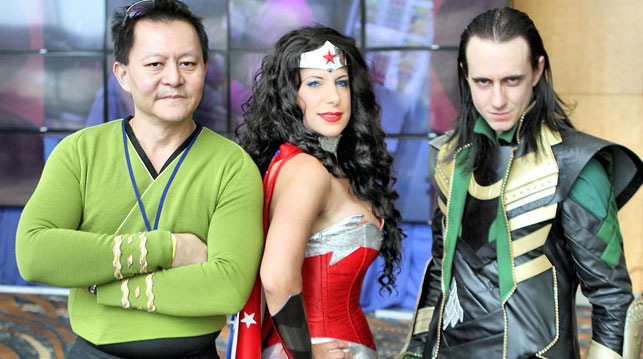
In a word: yes.
Last time, I talked about how writing fanfiction can help you as a writer. Now, I’m going to talk about how it can help your writing.
Dialogue
I wholeheartedly recommend fanfiction for people who need to work on their dialogue skills.
As I’ve noted before, a sure sign of an unskilled writer is that all the characters sound the same. Fanfic is a great way to get a feel for how professional writers create a character’s voice. And I’m not just talking about tags like “Don’t have a cow, man,” “Elementary, my dear Watson,” and “Get away from her, you bitch!”
Get a free sample proofread and edit for your document.
Two professional proofreaders will proofread and edit your document.
I’m talking about cadence, diction, sentence structure, slang, local accent, and all the things that mean you know whom you’re listening to before the author puts “so-and-so said” at the end of the line. Frankly, if your Tony Stark sounds just like your Jar Jar Binks, your dialogue skills need massive work, and fanfic (along with readers’ feedback) is a great way to work that out.
Try this exercise for yourself. Take a common thing to say, such as “it’s cold,” and make different characters say it.
Leroy Jethro Gibbs: Is there some reason the window is open?
Elizabeth Bennet: Oh dear. It is a bit cool in here. Let me ring for the maid.
Worf: Inhospitable temperatures only trouble the weak.
Katniss Everdeen: Do I have to kill something to get some heat in this room?
Hermione Granger: The temperature in this room is not satisfactory. Warmioso!
Forrest Gump: I don’t think it’s supposed to be this cold, Jenny.
(Sorry about the Hermione one.)
And don’t forget when you’re reading fanfic to pay attention to how well the author captures the established characters’ voice as well.
Pacing
Movies, plays, and half-hour TV shows are usually written in three acts; hour-long TV shows (and Shakespeare) are usually five acts. Books tend to do the same, depending on length. In whatever medium, you’ll usually find an introduction, rising action, climax, and denouement. Writing a story that matches the pace of a successful piece of fiction is a great way to learn about setting things up and knocking them down.
Recognizing Your Inner Mary Sue
We all write Mary Sues (i.e., characters that are obviously our own alter egos: beautiful, strong, smart, heroic, and incredibly boring to everyone who isn’t us). We’ve all noticed that George Lucas’ main character is named Luke, right?
I loathe them for the most part, but just when I think I don’t write Mary Sues, I realize my latest character is a Mary Sue on steroids, and then I can self-correct. Writing some really self-indulgent fanfiction is a great way to learn your personal warning signs.
But if you work hard, even a Mary Sue can become an interesting character.
In their pure form, Mary Sues are, well, pure. She’s got violet eyes. He’s got a perfect six-pack. She’s a wiz on computers. He’s a billionaire. She speaks twelve languages. He’s a crazy son of a bitch who can out-drive anyone.
The impulse to write up a version of ourselves who can do anything we want to do doesn’t make us evil. It just makes us tedious. Fanfic can be a great way to exorcise this demon. Write up a story where some ordinary soldier beats up Hitler. Make a sequel to The Matrix where Ghost Neo and Trinity train up a new One. Create the best singer ever on Glee. Take your prom photo, put a cape on your shoulders, and just go to town.
 Learn the ways you want to make your characters a little too perfect, a little too close to your own personal dreams. Then use feedback and personal objectivity to see why your idealized self is boring for others. Learn your own alter-ego downfalls, and you’ll be able to tell from then on that your original detective character is a little too smart, your heroine is a little too invincible, and your villain is a little too all-powerful.
Learn the ways you want to make your characters a little too perfect, a little too close to your own personal dreams. Then use feedback and personal objectivity to see why your idealized self is boring for others. Learn your own alter-ego downfalls, and you’ll be able to tell from then on that your original detective character is a little too smart, your heroine is a little too invincible, and your villain is a little too all-powerful.
So now you can see what you might get out of writing your own Criminal Minds-meets-Downton Abbey adventure, and I strongly encourage you to try.
Coming up in Part 3: fanfic drawbacks.
Julia H.
Get a free sample proofread and edit for your document.
Two professional proofreaders will proofread and edit your document.
Get a free sample proofread and edit for your document.
Two professional proofreaders will proofread and edit your document.
We will get your free sample back in three to six hours!